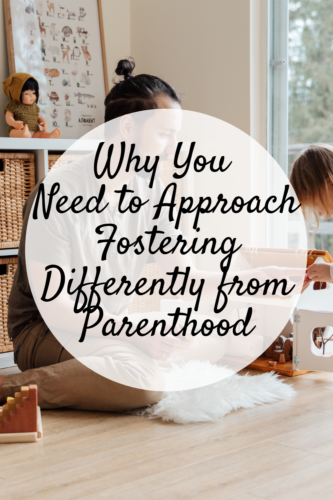
If you have raised happy, healthy children or are continuing to do so, you might believe you have all the tools needed to become a foster parent. While this is likely the case, it is crucial to approach fostering differently to raising your biological children.
After all, many foster children have experienced trauma in their lives, which may affect their feelings of security, behavior, and development. Also, you must adjust your mindset to their behaviors to help them control their emotions and enjoy a happier childhood. Continue reading to learn why you need to approach fostering differently from parenthood.
Fostering Children Will Have Different Needs
Every foster child is unique, and their experiences will shape their emotional needs, behavior, and development. Unlike children raised in a supportive, loving home from birth, foster children may have endured a life-changing bereavement, mental and/or physical trauma, or abandonment.
Caring for a foster child could result in parenting challenges you may never have experienced with your biological children. For example, they might have control or behavioral problems that may feel hard to manage at times.
Yet, support is available from your chosen foster agency. A prime example is thefca.co.uk, which provides 24/7 support to help foster parents develop the skills to care for a foster child’s specific needs. Plus, ongoing training is available to ensure you can create a safe, secure, and caring environment for a young person.
The Importance of Therapeutic Fostering
When raising a child of your own, you might have scolded them for breaking the rules or displaying naughty behavior. Yet, you may need to alter your approach when welcoming a foster child into your home.
Therapeutic fostering is crucial for helping to reframe your mindset and your perception of naughty or attention-seeking behaviors. It requires you to learn that a foster child or teen’s actions are caused by the trauma they have experienced to date. By doing so, you can provide a young person with the emotional, social, and psychological support they need.
You’ll Need to Learn About Your Foster Child
Bonding often comes naturally between a parent and their child, as they will have learned about their personality, likes, and dislikes each passing year. You’ll have shared vacations, family dinners, and holidays together, which will have strengthened your connection.
However, a foster child will arrive at your home likely feeling overwhelmed, anxious, and afraid. It can take time to build a bond, which means you’re more likely to experience tension, conflict, and arguments. You’ll need to take the time to get to know their personality learn about their emotional triggers, favorite foods, sense of humor, and more. Therefore, you’ll need a great deal of patience and understanding to make them feel loved, supported, and comfortable while living in your home.
If you have any questions, your chosen fostering agency will provide the answers you need to make an informed choice on welcoming a foster child into your life. While foster children will have different needs, it could be one of the most rewarding experiences of your life.





Leave a Reply